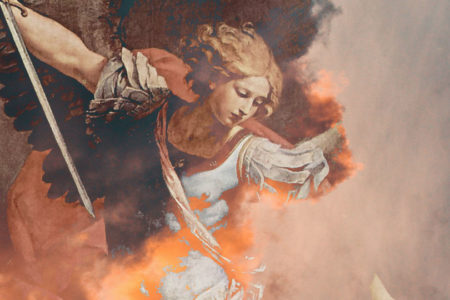Coming for His Bride
While on a class trip in Israel many years ago, I stumbled on a Jewish wedding taking place in Cana of Galilee. It reminded me of the future Rapture of the church and of Christ’s words in John 14:1–3:
Let not your heart be troubled; you believe in God, believe also in Me. In My Father’s house are many mansions; if it were not so, I would have told you. I go to prepare a place for you. And if I go and prepare a place for you, I will come again and receive you to Myself; that where I am, there you may be also.
Townspeople lined the street as the handsome young bridegroom rode slowly by on a donkey. He looked like a king—dressed all in white, with a gold cloth wrapped around his waist. A white, Bedouin-style cloth covered his head; and he wore sandals (more like slippers) decorated in splendid, ornamental lace.
The donkey also was adorned royally, with a sequined, carpet-like saddle. Around its neck hung large, gold-twisted chains with small bells; and an ornate wreath of flowers sat on its head.
Flanking the bridegroom were men of all ages. They kept a steady pace, moving slowly down the road with him as they sang a repetitious, simple tune.
An elderly man, probably the town patriarch, led the procession. He wore a long, scarlet robe that opened as he twirled in dance. If I recall correctly, he swung a stick over his head as he chanted.
The sound of ululation filled the air. Ululation is a high-pitched trill commonly made by Mizrahi Jewish women on happy occasions. Mizrahi in Hebrew means “Eastern” or “Oriental,” and it refers to the descendants of Middle Eastern Jewish people from biblical times.
A local onlooker told us both families had arranged the marriage and that the couple had an unnecessarily long, drawn-out betrothal. According to ancient Jewish marriage custom, the man uses the betrothal period to prepare a home for his bride and himself in his father’s house. The bystander told us the lazy bridegroom had needlessly delayed the marriage by procrastinating his building of an extension to his parents’ house.
It was amazing to witness some semblance of the ancient Jewish marriage custom. It reminded me of a sermon Dr. Renald Showers—retired author, professor, and international conference speaker for The Friends of Israel Gospel Ministry—once preached regarding the remarkable parallel between ancient Jewish marriage customs and Christ’s Rapture of His church.
Just as the Jewish bridegroom returned for his betrothed, Jesus will return for us. Jesus promises to prepare a place for us and bring us home with Him. Scripture clearly teaches the church is Christ’s bride, which He lovingly and sacrificially purchased with His blood. The indwelling of the Holy Spirit secures our position.
The present Church Age is our betrothal period. But unlike the lazy bridegroom I saw in Cana, Jesus is busy preparing a place for us and will return for us at the appointed time.
What a cause to rejoice! Like the Jewish women in Cana ululating for joy, we should “[speak] to one another in psalms and hymns and spiritual songs, singing and making melody in [our hearts] to the Lord” (Eph. 5:19).
As Christ’s bride, we eagerly await His return. “For the Lord Himself will descend from heaven with a shout, with the voice of an archangel, and with the trumpet of God. And the dead in Christ will rise first. Then we who are alive and remain shall be caught up together with them in the clouds to meet the Lord in the air. And thus we shall always be with the Lord” (1 Th. 4:16–17).
Our Bridegroom is coming soon.









Praise God. What a wonderful picture!
Amen!